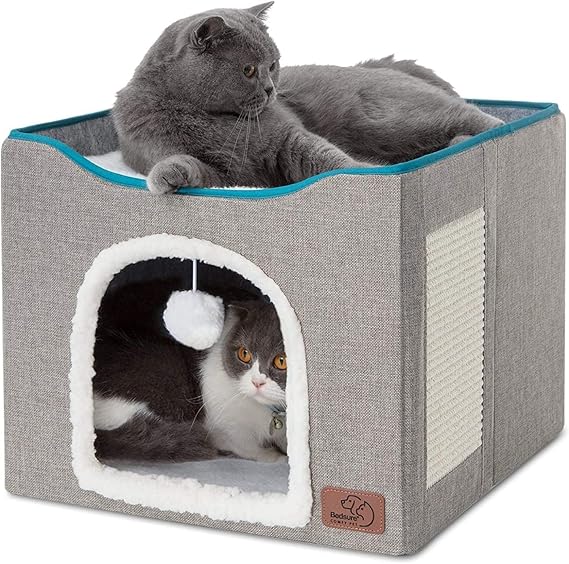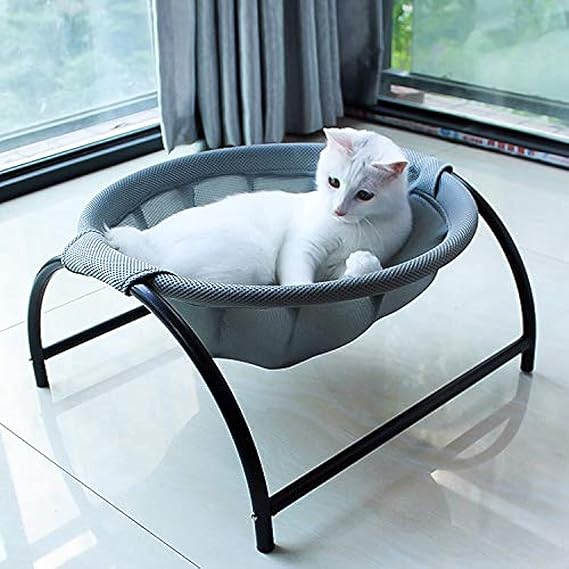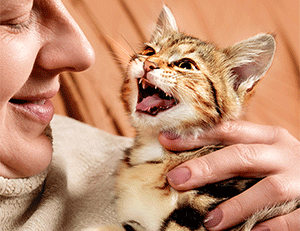At some point, all cat owners have questions about whether their cat understands them. In essence, can cats comprehend human language? While dogs communicate more simply with a smile, bark, or tail wag, cats are generally more challenging to interpret, as we rely on their behavior and body language to understand their emotions. As a result, many people perceive cats as unfeeling creatures. However, that's their nature! They are independent and intelligent creatures! So, when it comes to determining if cats can truly understand us, you may be surprised.
Other Topics You Might Like
Helpful Products You Might Like

FELIWAY Classic Cat Calming Pheromone Diffuser

Bedsure Cat Beds and Cat Cave for Pet Cat House

Cat Hammock Bed For Cat Sleeping
"(Paid Links)" 
Will Your Cat Understand If You "Meow"?
I'm sorry, but cats don't understand human meows. They might pay attention to you and even respond with purring or meowing, but they don't interpret human meows as communication. Natural cat meows have a distinct sound that humans can't replicate. Just as cats can't speak human languages, humans can't talk about cat language. While it's not harmful to meow at your cat, you'll have better luck communicating in your human language!
Cats vocalize to grab your attention. It is a way of communicating to humans for their needs. Whenever your cat meows, it's not just for casual conversation. Often, they'll meow and even guide you to what they want. Whether it's a shut door, a soiled litter box, or an empty food dish, your cat will persistently meow until their needs are met.

Is It Possible To Teach Your Cats to Respond to Human Meows?

Absolutely! Cats are quick learners and readily connect your meowing with whatever you consistently teach them. For instance, if you use a specific meow when feeding your cat, they might eventually learn that this sound means food. It is a fundamental form of communication called conditioning, which involves associating a specific stimulus with a desired response. In this scenario, the stimulus is the particular meow, and the response is being fed. So, yes, the cat will comprehend your meow.
DO All Cats Understand Human Meows?
Most cats might interpret your human meow as a signal to "interact with me." However, if you train your cat to have a conditioned response (like "mealtime!") to a specific meow, it won't necessarily have the same meaning for all cats. For the meow to effectively communicate, the individual cat and the human must mutually understand what the meow signifies. You can only accomplish it through conditioning, where the cat links the meow with a specific reaction from the human.
What Cat Breeds Talk the Most?
Certain cat breeds tend to be more talkative than others. For instance, Siamese cats are recognized for being quite vocal and meowing frequently. Oriental Shorthairs, Peterbald's, and Sphynx cats are also known for being more vocal. This behavior often stems from these breeds being specifically bred for companionship and social interaction.

Why Cat Not Meow Back?
Not all cats will vocalize in response to humans. This is because, as they age, cats tend to outgrow playful behaviors. Therefore, if you're trying to interact with an older cat, it shouldn't be unexpected if they don't reply with meows. Conversely, suppose you've adopted a feral cat that has been abandoned or has reverted to a wild state. In that case, they are generally not accustomed to human interaction and, as a result, may need help comprehending how to use meowing to communicate with you.
Meowing is a way for domestic cats to communicate with their human companions. Feral cats may not meow as they may not understand this form of communication. Some breeds of cats are naturally quiet and may only meow when spoken to, or not at all. If your cat is the silent type, there's no need to worry!
What Does It Mean if YOUR Cat Stops Meowing Back?
If a chatty feline suddenly goes silent, it may be a cause for worry. There are many potential reasons for this shift in behavior, but it often indicates that the cat could be sick or injured. Suppose the cat is no longer making noise. In that case, it might suggest a respiratory issue, a sore throat, a damaged larynx, a digestive problem, or simply that it's in pain and requires veterinary attention.
